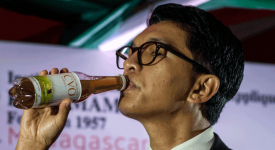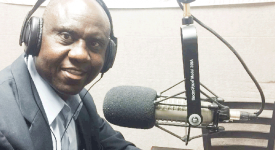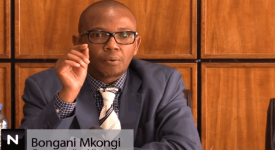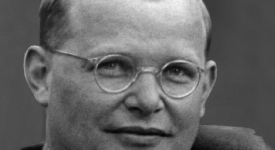Naming Jesus of Nazareth, Nnamdi Kanu of Nigeria, and Martin Luther King of America as examples of witnesses to systemic injustice and oppression my mind returns to three (3) dilemmas which have occupied me since the mid-1997:
1. The sheer wickedness which “believing” and/or “religious” persons are capable of fomenting, these occupying a terrifyingly wide space in human geographies;
2. The dangerous acquisitions of rapacious “knowledge” presuppositions, the weapon of knowing, or thoughts or assertions of knowing, or of knowledge, which poignantly promiscuate religious rituals as well as social and political actions in people whose lifestyle performances have been irreducibly inducted via western texts, book imaginaries, or education: that idea that you are now “literate”–a prior intellectual liberation– because you have your name on a plaque or certificate from a “proven university, or the mere prospect of it; and
3. The nerve-racking tendency and stellar capacity of human beings to mine, manufacture, and manipulate the meaning of their worlds for “meaning”.
Jesus, from the biological standpoint, is someone’s relations, somebody’s son, someone else’s brother. Nnamdi Kanu is somebody’s son, brother, relation, uncle, too. Same with the Reverend King who was murdered because he had a loud voice and stepped out of line. This year, on August 28, clocks the 53rd year since that bullet drilled the breathe of the man. King’s ghost and his soul are here, tormenting both his killers and the system which prejudged his life as meaning nothing. Now that same system–unchanged, unrepentant in any demonstrable ways– deceives all who cared to believe that black lives mattered! The systemic silence from events which, systemically using the justice, police, army, religious and medical service personnel to deprive others (black Americans in the USA, Biafrans and Niger Deltans, and others in Nigeria, Palestinians, and elsewhere) of value to their existence rings powerfully into the hollowness of our corporate shortsightedness. Such maddening aristocratic proclivities forcing us to abandon humanity to the whims and caprices of our doings and undoings re-designates monstrous animality for magnanimity. For immediate material security and comfort we are often prone to sell-out, to destroy the other, the ones with difference. It is non-issue for us to deal them deserving blows with the readiness of our drones to drive sense into all perceived and realist enemies. We seldom would ever consider ourselves enemies to our selves.
But isn’t it interesting how easily we demonize the other in order to get away with our associations with evil? For example, my country sponsors the assassination of the president of another country I celebrate that feat because it is a matter of national security, or so they tell us through the media powers. Then I believe it from the comfort of my ignorance or “knowledge”. I absolve myself from all responsibilities because afterall, “it aint me.” Well I only live under the cover and protection of a wicked and terrible regime. My profound gaping disconnect with victims of the systems which privilege from its killing of innocent populations, or looking away while these are being killed, slides me into shock waves of false sense of tranquilizing security and peace. In that instance I forget. I forget to remember that:
They too are the earth
The swamsongs of beggars sprawled out
The brimming gutters
They are the earth
Under snakeskin shoes and Mercedes tyres
They too are the earth
The sweat and grime of
Millions hewing wood and hurling water
They are the earth
Muddy every pore like naked moles
They too are the earth
The distant groans of thousands buried alive
In hard unfathomable mines
They are the earth
Of gold dreams and blood banks
They too are the earth
The dying distant deaths
In narrow abandoned hamlets
They are the earth
Women battling centuries
Maleficent slavery
Are they of this earth
Who fritter the forest and harry the hills
Are they of this earth
Who live that earth may die
Are they?[1]
The resulting weightiness of my pondering led me into momentarily settling down with Martin Luther on his upward climb until further notice: “My eyes have seen the coming of the glory of the Lord.” And for how long can justice be buried in the prisons of man’s incarcerations?
[1] Niyi Osundare, The Eye of the Earth. Ibadan: Heinemann, 1986, 33.








